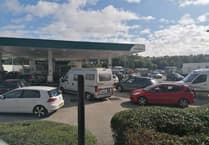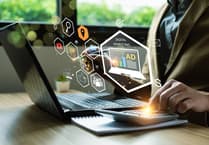Today marks the 50th anniversary of an invention that revolutionised society, is used over 10 billion times daily worldwide, and is seen by Brits more than 20 times a day – the barcode. This unassuming creation, more ubiquitous than Google's search engine, has woven itself into our cultural fabric and transformed global commerce.
Norman Joseph Woodland, inspired by his Boy Scout Morse Code training, drew the world's first barcode on a Florida beach in 1948. Woodland's invention remained relatively obscure until April 3, 1973, when industry leaders agreed on a common business practice – the barcode – and George Joseph Laurer developed a variation of Woodland's design.
New research by GS1 UK, the world's only authorised provider of Global Trade Item Numbers (GTINs) that power each barcode, reveals that despite the barcode's immense impact, its creator remains largely unknown. Only 4 per ent of Brits recognised Woodland among a list of inventors, while Bill Gates, Marie Curie, and James Dyson topped the list.
The first product to be scanned with a barcode in the world was a pack of Wrigley's chewing gum in Ohio in 1974. In 1979, the UK's first scanned product was a box of Melrose Tea Bags in Keymarkets in Spalding.
Anne Godfrey, GS1 UK CEO, said, "The invention of the barcode is one of the great, untold stories in the history of our modern world." Although 63 per cent of consumers recognise the barcode's role in identifying products, a third do not realise how it affects their everyday lives. Only 17 per cent recognised its importance in food safety, and 13 per cent were aware of its role in healthcare.
Godfrey continued, "Today the barcode is more frequently used than Google. It has revolutionised our day-to-day in ways most do not realize." The next generation of on-pack labeling, QR codes powered by GS1 standards, will connect physical products to the digital world, providing consumers with real-time information about the products they buy.
Chris Tyas OBE, Global Supply Chain Expert and Chair of GS1 UK, said, "There are two things that can be considered transformational for supply chain in the last 50 years, the container and the barcode." As we enter the next phase of connectivity, supply chains will continue to evolve, and consumers will have the information they demand to make informed choices.
As the barcode turns 50, let's celebrate this humble invention that has played an indispensable role in global commerce and our daily lives.



